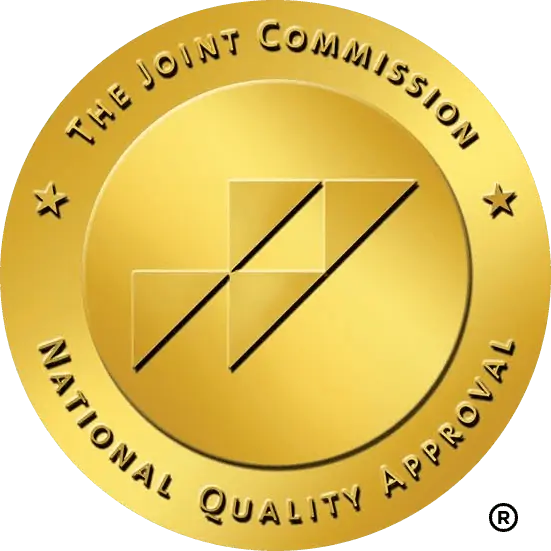Imagine a world where your teen feels understood, supported and on track to achieving their goals and aspirations. This isn't just a dream—it's a reality we can work towards together.
For parents seeking behavioral health treatment, finding the right answers and, more importantly, the right treatment program is perhaps one of the most challenging and frustrating experiences you can have. At times, it feels like you are battling against all odds.
This article is here to guide you through Aetna’s residential treatment coverage: the process, the services covered, and how to utilize it effectively. Residential treatment is a comprehensive approach designed to provide round-the-clock care for teens grappling with severe mental health issues. With the right information and support, you can help your teen receive the care they desperately need.
Let’s get into the specifics of Aetna’s residential treatment coverage for teens.
Introduction to Aetna Residential Treatment Coverage for Teens
Understanding Aetna’s Teen Mental Health Focus
Aetna has a strong reputation in the insurance industry and it is strongly committed to mental health services. Their focus on teen mental health is clear in their comprehensive residential treatment coverage. Consequently, they’ve designed their policies to reflect this understanding.
The Benefits of Residential Treatment
Residential treatment provides a structured, supportive environment where teens can step away from their everyday stressors and focus entirely on healing. With 24/7 professional care, teens receive personalized treatment that addresses their unique challenges in a safe setting.
This type of intensive care can be crucial. It’s especially important for teens struggling with complex mental health conditions.
Deciphering Aetna’s Coverage
Knowing exactly what Aetna covers can ease the burden for parents like you who are already dealing with so much, you can learn more about Aetna’s mental health insurance benefits and coverage here.
What Aetna’s Residential Treatment Typically Includes
Generally, Aetna’s residential treatment coverage includes several key components. These typically consist of:
- Therapy sessions with licensed mental health professionals
- Medication management and regular monitoring
- Holistic care approaches, such as group therapy, art therapy, or mindfulness practices
Therapy Types Offered Through Aetna
Typically, Aetna’s residential treatment coverage includes:
- Therapy sessions with licensed mental health professionals
- Medication management and regular monitoring
- Holistic care approaches, such as group therapy, art therapy, or mindfulness practices
Furthermore, Aetna offers access to a variety of traditional therapy types. These therapies are often integrated into treatment. This treatment occurs at a residential treatment center like Turning Winds. These include:
- Psychotherapy: This umbrella term encompasses techniques designed to address thoughts, behaviors, and emotions that aren’t useful or productive.
- Cognitive Behavioral Therapy (CBT): A structured talk therapy that helps identify and change unhelpful thought and behavior patterns.
- Dialectical Behavioral Therapy (DBT): A focused approach targeting intense emotions, often used in personality disorder treatments, such as for borderline personality disorder.
These comprehensive options allow us to find the most effective mental health treatment tailored to the teen’s needs, ensuring a holistic path to well-being. By covering a broad range of services, Aetna ensures teens have access to the tools they need to heal, grow, and thrive.
Understanding Aetna Mental Health Treatment Coverage
Aetna provides comprehensive mental health coverage designed to be adaptable and, in some cases, all-inclusive. It addresses a wide range of services, from therapy sessions to intensive residential care. Recognizing the growing need for mental health support, especially among teens today, Aetna ensures its plans include various essential services to support mental well-being.
Key Features of Aetna’s Mental Health Treatment Coverage:
- Levels of Care: Includes inpatient, outpatient, and residential treatment options to cater to varying needs.
- Network of Mental Health Providers: Access to a robust network of experienced mental health professionals and facilities.
- Coverage Options for Out-of-Network Providers: Offers coverage options such as co-pays for out-of-network providers, though specifics can vary by policy.
- Intensive Outpatient Program (IOP) Coverage: Includes structured, intensive treatment programs that do not require overnight stays.
- Behavioral Health Services: Ensures access to behavioral health services through an extensive provider network.
Aetna’s mental health coverage offers various levels of care, from outpatient therapy to intensive residential treatment, and provides access to a robust network of experienced mental health professionals and facilities.
- Essential Services Covered:
- Individual therapy sessions
- Family counseling to support the entire household well-being
- Medication prescriptions and ongoing management for clinical needs
- Crisis intervention
- Support for co-occurring disorders
Additional InPatient Health Insurance Coverage Considerations:
- Medical Necessity and Pre-authorization: It’s important to understand your policy’s specific criteria for medical necessity and any pre-authorization steps.
- Out-of-Pocket Costs: Be aware of any deductibles, co-pays, and co-insurance associated with your coverage.
- Family Support: Aetna’s plans often include support for family members, including family therapy sessions.
- Preferred Providers: Knowing which providers and facilities have special agreements with Aetna can maximize your benefits.
- Appeal Process: Familiarize yourself with the process for filing an appeal if coverage is denied or limited.
Behavioral Health Services:
Comprehensive Coverage: Aetna offers coverage for therapy, counseling, and psychiatric care, ensuring a broad spectrum of behavioral health services is available to members.
Session Limits and Preauthorization: Be aware that some plans may impose session limits or require preauthorization for certain services.
Out-of-Network Restrictions: Opting for out-of-network care can lead to higher costs and limited coverage.
Maximizing Benefits: Selecting providers who are approved by your insurance ensures you reap the full benefits of your plan. This strategic choice is essential for both inpatient and outpatient care.
Navigating Coverage Limits: To make the most of your behavioral health benefits, it’s crucial to understand the specific limits of your plan.
Understanding the scope of your Aetna mental health coverage is crucial for planning effective treatment strategies, utilizing all available benefits, and providing the necessary support for your teen to start healing and return to a healthier lifestyle. When mental health challenges become overwhelming, knowing that residential treatment is covered can provide significant relief and reassurance for families.
Why Residential Treatment is Important for Teens Struggling with Mental Health
Sometimes, outpatient therapy just isn’t enough. Teens dealing with severe anxiety, depression, trauma, or behavioral health disorders often need a higher level of care to achieve meaningful progress. In some situations, outpatient therapy might not be enough, and your child will need a higher level of care.
Severe Mental Health Conditions
When teens are struggling with severe anxiety, depression, or other mental health issues, they may require more intensive treatment than outpatient therapy can provide. This could include inpatient hospitalization, residential treatment, or partial hospitalization programs. These programs offer more support and structure
Trauma and PTSD
Teens who have experienced trauma may need specialized treatment to address their symptoms and develop coping mechanisms. Trauma-focused therapy, such as Eye Movement Desensitization and Reprocessing (EMDR) or Cognitive Processing Therapy (CPT), can be beneficial. In some cases, inpatient or residential treatment may be necessary. This provides a safe and supportive environment for healing.
Substance Misuse and Addiction
Teens struggling with substance misuse or addictions often require a comprehensive treatment approach. This approach addresses both the underlying causes of their substance use. it also deals with the physical and psychological effects of addiction. After detox, a structured residential treatment program can provide a supportive environment. This environment is more conducive to long-term healing and recovery.
Behavioral Issues and Conduct Disorders
Teens with behavioral issues or conduct disorders may benefit from intensive treatment programs. These programs are designed to address their underlying emotional and behavioral challenges. Treatment programs like ours include individual and group therapy, family therapy, and skills training. Residential treatment programs can provide a structured and therapeutic environment. This helps teens develop positive behaviors and coping skills.
Self-Harm and Suicidal Ideation
Teens who are engaging in self-harm or experiencing suicidal thoughts require immediate intervention and intensive treatment. This may include inpatient hospitalization, residential treatment, or partial hospitalization programs. Safety planning and crisis intervention are essential components of residential treatment.
Turning Winds provides that next level of support. We offer an immersive environment where healing can happen.
RTC Effectiveness for Teens with Mental Health Diagnoses
Here’s what makes residential treatment so effective:
24/7 Professional Supervision
Teens receive round-the-clock support and care. This ensures their safety and well-being at all times. This constant support can be crucial for teens in crisis.
Structured Daily Routines
Therapy, activities, and learning opportunities create stability. They also foster growth. A consistent routine can help teens feel more grounded and in control.
Community and Peer Support
Being surrounded by peers who understand their struggles helps teens feel less alone. It also helps them feel more understood. This sense of community can be incredibly validating and supportive.
Residential treatment allows teens to focus entirely on their mental health. They can do so without the distractions and stressors of daily life. This immersive approach can lead to more effective and long-lasting improvements. It offers hope and relief for both teens and their families.
What Exactly is a Teen Mental Health Disorder?
A teen mental health disorder, also known as mental health illness, is a clinically recognized condition that affects an adolescent’s ability to regulate emotions, thoughts and behaviors. These disruptions lead to significant distress and challenges in school, relationships, and daily life. Mental health professionals use the Diagnostic and Statistical Manual of Mental Disorders (DSM5) to provide clinical diagnoses for mental illnesses.
How are Teen Behavioral Health Problems and Mental Health Disorders Different?
Behavioral Health Problems affect an adolescent’s overall well-being, including emotional, psychological and behavioral patterns or actions. that affect their life negatively. Behaviors like excessive gaming, substance use, being disruptive and taking unnecessary risks, and having poor social skills. Behavioral health problems are not always classified as mental health disorders but may still require intervention and alternative treatment approaches.
Steps to Verify Insurance Coverage with Aetna
Health insurance policy coverage is unique to each health insurance plan. Therefore, when you have questions about insurance coverage for treatment services, speaking to Aetna’s customer service is the best approach.
They will provide clarity on your Aetna’s health insurance policy coverage. Specifically, ask them about:
- substance use disorders
- behavioral health treatment and limitations
- coverage for dual diagnosis or co-occurrences
- inpatient treatment options
We recommend you prepare a list of questions beforehand to ensure you get the necessary answers.
3 Steps to Verify Aetna Coverage for Mental Health
To effectively verify your Aetna mental health coverage, you have a couple of straightforward options that cater to different preferences. Whether you prefer human interaction or a digital approach, here’s how you can proceed:
First, contact Aetna directly: You can contact Aetna’s customer service for a personalized touch. Use the number on the back of your insurance card to speak with a representative about your mental health coverage.
Second, use Aetna’s Online Resources:
- Insurance Verification Tool: Quickly confirm your coverage using the online verification tool available on Aetna’s website. This is a convenient option for those who prefer digital methods.
- Member Portal: Log in to Aetna’s online member portal to access your policy documents and coverage details. Here, you can find any forms you might need.
Steps to Verify Aetna Coverage for Residential Treatment
For those interested in verifying coverage specifically for residential treatment, here’s a step-by-step guide to help you, along with important questions to consider:
Gather Your Policy Information: Have your policy number and plan details ready. You’ll need this information when speaking with Aetna.
Contact Aetna’s Customer Service: As mentioned, call the number on the back of your insurance card and ask to speak with a representative about mental health coverage.
Ask Aetna About Residential Treatment Coverage
Questions to ask:
- What are the coverage levels for residential treatment?
- Are there differences between in-network and out-of-network benefits?
- What pre-authorization steps do I need to complete?
- What are the specific criteria for medical necessity for residential treatment?
- How long is the initial approval period for residential treatment, and what is the process for extending coverage if needed?
- Are there any exclusions or limitations on the types of treatments covered within the residential program?
- What are the out-of-pocket costs, including deductibles, co-pays, and co-insurance?
- Does the insurance plan cover family therapy sessions or support for family members during teen treatment?
- What are the plan limitations and costs?
- What is the copay for teen residential treatment?
- Are there any exclusions that only apply to residential treatment for teens?
Follow these steps to verify your Aetna coverage for mental health services and residential treatment. This will provide the information you need to make informed decisions about your teen’s care and access all available benefits.
Overcoming Barriers to Teen Mental Health Care
Navigating insurance can be challenging. If you find the terminology confusing or encounter obstacles, don’t hesitate to contact Aetna’s customer service. They can provide clarification.
Additionally, you can also use Aetna’s online resources for more detailed information. Finally, consult with the admissions team of the treatment center you are considering. These teams often have in-house experts who work with insurance providers. They can help you understand your options.
Sometimes, the Aetna policy details include specific limits. These limits can apply to special circumstances and specific treatment options. Not knowing about these limits can obstruct and delay getting access to your teen’s necessary care.
The Devil is in the Details
Interpreting the fine print in the terms and conditions is difficult for the average person. More often than not, it leads to unexpected costs. That’s why we recommend you pay close attention to the details.
Understanding Aetna’s mental health coverage for your family will help you avoid potential setbacks and financial surprises. Ultimately, taking the time upfront to get the answers you need about your Aetna health insurance policy will ensure a smoother treatment process for your struggling teen.
Would you like to know what behavioral health benefits your Aetna insurance plan offers for residential treatment?

Types of Mental Health Disorders Covered by Aetna
Aetna’s mental health coverage covres a wide range of conditions, ensuring that teens with diverse challenges can access appropriate care. In addition to the conditions mentioned above, the most common covered disorders include:
- Depression: Persistent sadness, loss of interest, and low energy.
- Anxiety Disorders: Excessive worry, fear, and panic that interfere with daily life.
- Bipolar Disorder: Intense mood swings, ranging from deep depression to high-energy mania.
- ADHD: Issues with focus, hyperactivity, and impulsive behaviors.
Other conditions often covered include:
- Eating Disorders: Such as anorexia, bulimia, and binge eating.
- Obsessive-Compulsive Disorder (OCD): Intrusive thoughts and repetitive behaviors.
- Post-Traumatic Stress Disorder (PTSD): Anxiety and flashbacks related to past trauma.
Aetna’s comprehensive coverage of these diverse mental health disorders makes it possible for treatment facilities, like Turning Winds, to develop personalized treatment plans to meet each teen’s unique needs, resulting in better outcomes.
The Importance of Comparing In-Network and Out-of-Network Options
Understanding the difference between in-network and out-of-network providers is important to your decision-making. While in-network providers have pre-negotiated rates with Aetna which can lower costs. Out-of-network providers often offer a higher level of specialized care. Many parents don’t realize that Aetna may cover a percentage of the treatment cost in their preferred treatment choice.
When considering treatment options, it’s essential to weigh the benefits and drawbacks:
- In-network providers often mean lower costs and easier claim approvals, but short-term treatment options last from weeks to a couple of months and for true healing and growth, a teen needs more time to delve into root causes.
- Out-of-network providers can offer more flexibility, longer-term care, academic support not available in short-term care, payment options and work with the insurance provider directly to file claims and get reimbursement for clinical services.
Analyze your options and speak to the admissions team. They will help you consider the financial implications and the specific needs of your teen to help you make the best decision.
Success Stories: Teens Who Found healing and Hope
Real-life examples of successful treatments can offer hope and guidance for families. Understanding these cases helps illustrate the potential impact of using Aetna residential treatment coverage. One such story involves a teen named Janice, who faced severe anxiety and depression.
Janice’s parents used Aetna’s mental health benefits to enroll her at Turning Winds, a residential treatment program for behavioral health. With the structured environment and comprehensive care, Janice made significant progress. She learned coping skills and gained confidence, enabling her to return home and thrive.
Another case is of Jack, a teenager struggling with substance misuse. His family worked closely with Turning Winds, the insurance coordinator, who worked with Aetna’s case management services to cover a personalized treatment plan for Jack to address his behaviors and, more importantly, the reasons and thinking that were driving Jack to make risky choices.
These examples showcase the success that is possible with the right support:
- Janice: Overcame anxiety and depression through residential treatment
- Jack: Found stability after addressing substance misuse and developing new skills to help him cope with daily challenges that were driving him to take unnecessary risks.
Both cases emphasize the value of Insurance comprehensive coverage for teen mental health.
Transformative Treatment for Your Teen —Choose Turning Winds
As I’m sure you know, finding teen mental health treatment is hard and often filled with fear, uncertainty, and the overwhelming desire to make the right choice for your child. If your family has coverage through Aetna, you may have more options available to you than you realize. This coverage can be a lifeline and help you access the right treatment and care for your teen.
Specifically, at Turning Winds, we understand how important it is to access the right behavioral health care at the right time. We work with all major insurance providers, including Aetna, to make residential treatment as accessible and stress-free as possible for families like yours.
Furthermore, our proven success in navigating Aetna’s coverage ensures that families receive the maximum benefits, allowing teens to access the comprehensive care they need to heal and thrive.
Finally, our team of compassionate professionals is here to guide you through the insurance process, handle paperwork, and answer any questions you have. We are committed to ensuring your teen gets the personalized care they need to heal and thrive.
〈 Key Takeaway 〉
Key takeaways for parents include:
- Verify and understand Aetna’s coverage
- Explore all treatment options
- Work with our admin counselors and insurance team to learn how to use your coverage at Turning Winds.
Taking the first step can lead to meaningful change and support for your teen’s long-term mental health journey.
Take the First Step: Don’t wait—early intervention can make all the difference. Delaying care may lead to worsening mental health challenges, but acting now can set your teen on a path to healing and hope. Contact us today and speak to our admissions team to discuss your situation. Let us help you navigate Aetna’s coverage options and start your teen’s journey to a healthier, happier future.
Get Accepted Or Pre-qualify
Frequently Asked Questions About Aetna Residential Treatment Coverage for Teens
What is the difference between inpatient and residential mental health treatment for teens?
- Inpatient treatment occurs in a psychiatric hospital or a psychiatric unit of a general hospital. It focuses on evaluating and stabilizing teens under a psychiatrist’s supervision, with a discharge plan that typically includes outpatient services.
- Residential treatment also focuses on evaluation and stabilization but offers a longer stay. It helps teens learn to cope effectively with symptoms and prepares them for a successful transition to outpatient care.
When Can Aetna Deny Coverage for Teen Behavioral Health Treatment?
Lack of Pre-Authorization: Coverage may be denied if the treatment is not pre-authorized or medically necessary.
Out-of-Network Provider: Coverage may be limited or denied if the treatment provider is out of network and your plan does not cover out-of-network providers. Verifying whether the RTC is in-network or has worked with your insurance provider will help you avoid unexpected costs.
Exceeded Treatment Duration: Aetna may deny continued coverage if the duration of residential treatment exceeds what they deem medically necessary.
To minimize the risk of denial of coverage, the RTC should understand the insurance company guidelines. The residential treatment center you choose should know and clearly explain what is covered and what is not. They should also help you advocate for extensions when your child needs extended care or services.
What are Aetna's criteria for determining medical necessity for residential behavioral health treatment?
Aetna considers Residential Treatment Center (RTC) services medically necessary for behavioral health care when a teen’s condition meets a specific criteria, indicating that less intensive treatment options are insufficient.
General Criteria for Medical Necessity:
- Severity of Condition
Significant behavioral, emotional, or cognitive issues that cannot be safely or effectively managed in a less intensive setting.
- Prior Treatment Failed or Lack of Success with Lower Level of Care
Previous outpatient or partial hospitalization treatments have been ineffective or are deemed inadequate due to the severity of the condition.
Urgency or High Risks Issues
- Risk of Self-Harm or Harm to Others
A substantial risk of harm to self or others or a significant risk of decline in the teen’s condition without residential treatment.
- Impaired Daily Functioning
Significant impairment in daily functioning, affecting age-appropriate activities, relationships, or academic/occupational performance.
- Need for a Structured Environment or Treatment Plan
A comprehensive, individualized treatment plan requires the 24-hour structure of a residential treatment center (RTC).
Remember that coverage varies depending on the specific health plan. When you work with Turning Winds, we make sure that the specified medical criteria are met. We make sure to follow Aetna’s pre-authorization procedures. We understand the need for additional pre-auths as your child improves and starts new therapies.
What Documents Are Required for Aetna Insurance Verification?
When verifying your Aetna insurance, you’ll need to prepare a few important documents:
First, you’ll need your insurance card. Ensure you have your Aetna insurance card and policy number ready for seamless processing. You will need to upload a copy of the card.
Second, have your Identification ready. A valid form of ID, such as a driver’s license or passport, will be necessary to confirm your identity. You will be asked to upload a copy of your driver’s license or ID.
Third, have the relevant employment details available if your insurance is through an employer. You may be asked for this information for verification.
Finally, be prepared to provide any details of past mental health treatments, if pertinent. Expect to sign release authorization forms due to HIPAA.
Gathering these documents ahead of time will help facilitate a smooth verification process.
Turning Winds & Health Care Insurance Coverage
We are here for you! We work with most major insurance providers, including Aetna, to make the process as smooth as possible for families. We have in-house experts that work closely with:
- Aetna
- Blue Cross/BlueShield
- Cigna
- HealthNet
- UMR
- PacificSource
- Tricare
Contact us or use our verify insurance tool to verify your mental health benefits.
Other Resources for Parents
- National Alliance of Mental Illness
- Youth.gov Mental Health
- You may find this “Guide to Mental Health & Substance Abuse Benefits” by SAMHSA helpful.
- Hot-line for parents of teens who encounter denials, delays and insurance obstacles – 1(800) 444-EBSA













